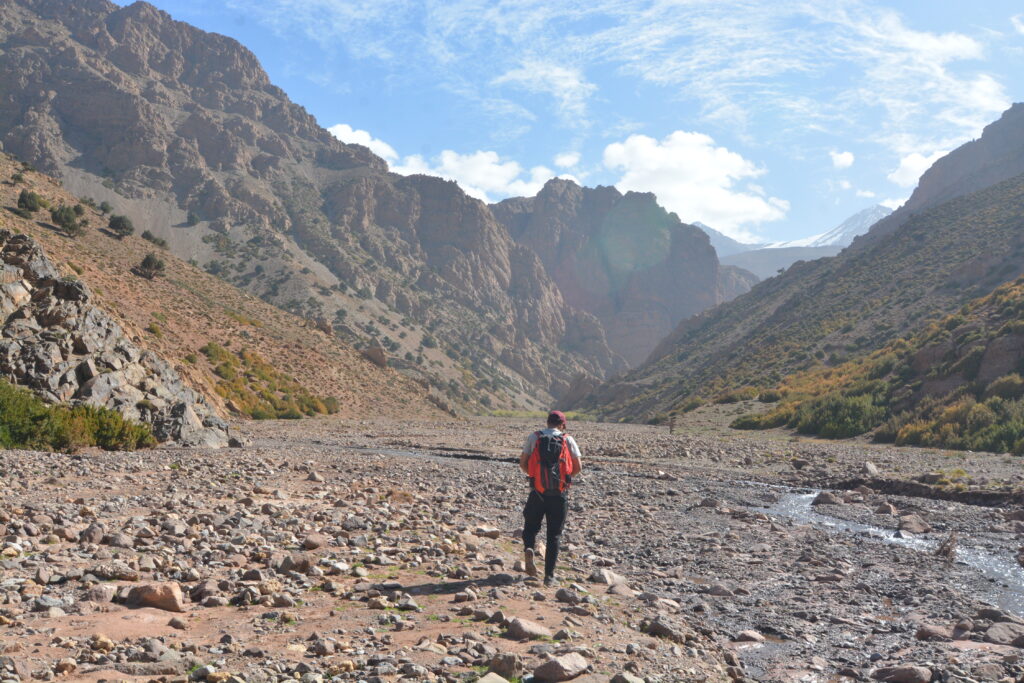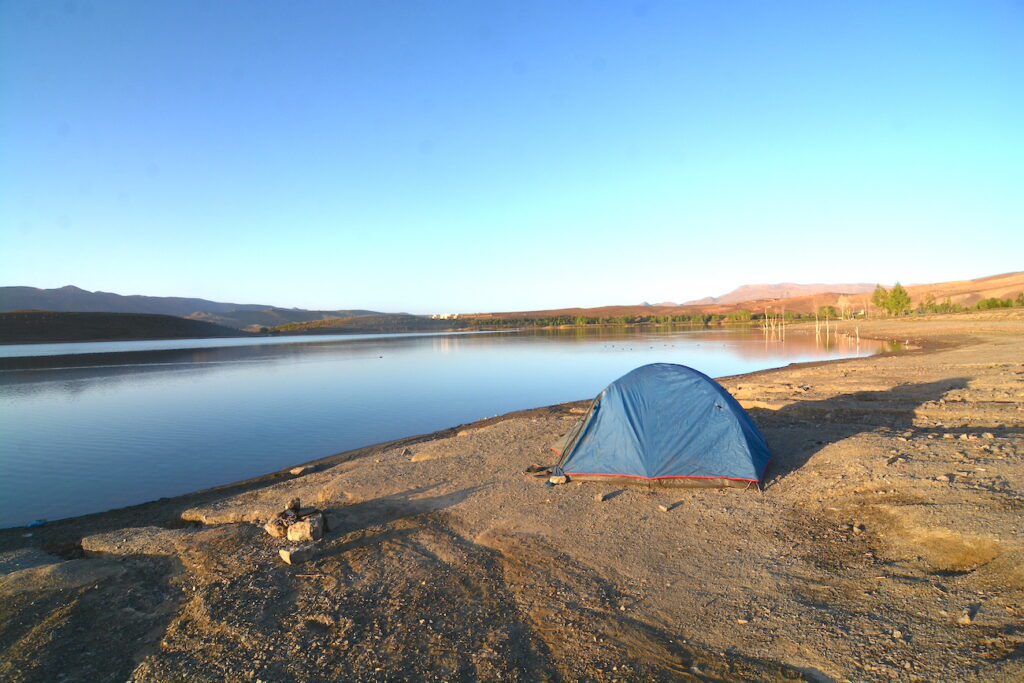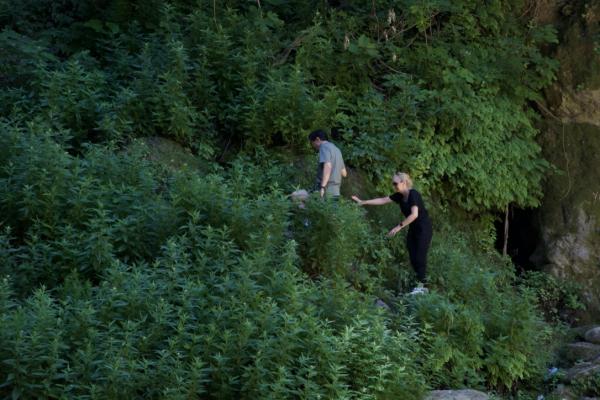Eco-Conscious Trekking Routes in the High Atlas Mountains
The High Atlas Mountains, with their majestic peaks and serene valleys, offer some of Morocco’s most breathtaking trekking experiences. As more adventurers seek to explore these stunning landscapes, it’s essential to do so responsibly. Join eco-conscious trekking practices help preserve the natural beauty and cultural heritage of this remarkable region. Here’s a guide to trekking routes in the High Atlas Mountains that prioritize sustainability, along with enriching experiences like volunteering and homestays with nomads.
1. The Allure of the High Atlas Mountains
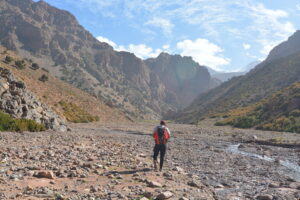
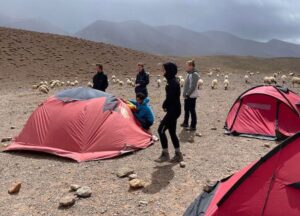
The High Atlas Mountains stretch across central Morocco, showcasing a diverse array of landscapes—from verdant valleys to rugged peaks. This region is home to traditional Berber villages, unique wildlife, and an array of flora. Popular treks like the Toubkal Circuit, Mgoun Trek, Ait Bouguemez Valley, and several other hidden gems offer breathtaking views and immersive cultural experiences. Let’s explore how you can enjoy these adventures while minimizing your environmental impact.
2. Eco-Conscious Trekking in Morocco
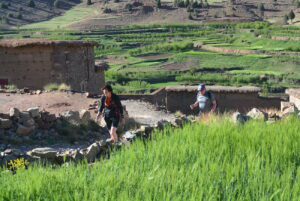
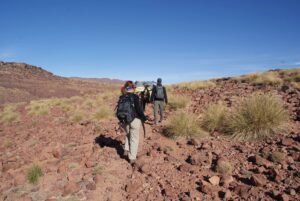
Adopting eco-conscious trekking practices is key to ensuring that our adventures have a positive impact. Here are some principles to follow:
- Plan Ahead and Prepare: Research your route and consider traveling during off-peak seasons to avoid overcrowding. Choose eco-friendly tour operators who prioritize sustainable practices.
- Stick to Marked Trails: Following established paths helps prevent damage to vegetation and minimizes soil erosion. Always stay on marked trails and avoid creating new paths.
- Pack Out What You Pack In: Carry all your waste, including food scraps and packaging, back with you. Use reusable containers and bags to reduce waste.
- Respect Wildlife: Observe animals from a distance and avoid feeding them. Interacting with wildlife can disrupt their natural behaviors and diets.
- Leave Natural and Cultural Features Untouched: Avoid picking plants, disturbing wildlife, or leaving graffiti. Respect local traditions and cultural sites.
3. Recommended Eco-Conscious Trekking Routes in Morocco
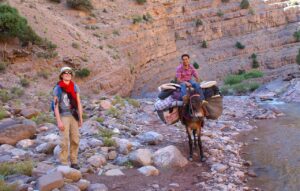
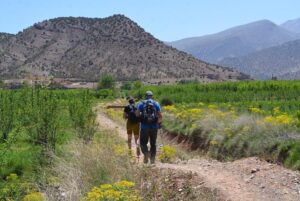
Here are some eco-conscious trekking routes in the High Atlas Mountains that align with sustainable practices:
-
Toubkal Circuit:
This trek leads to the summit of Jebel Toubkal, the highest peak in North Africa. Opt for guided tours with local Berber operators who emphasize sustainability. The trek offers stunning views and passes through traditional villages where you can engage with local culture and contribute to the community.
-
Mgoun Trek:
The Mgoun Trek takes you through the dramatic landscapes of the Mgoun Massif, offering a more remote and tranquil experience. It’s ideal for those seeking solitude and natural beauty. Choose local guides and eco-friendly accommodations to ensure a positive impact.
-
Jbel Saghro:
One of the unique destinations for trekking routes in the Atlas Mountains, Located on the southern edge of the High Atlas, Jbel Saghro offers a unique trekking experience with its volcanic landscapes and rugged terrain. The trek is less frequented, providing a sense of solitude and adventure. Be mindful of the environment and engage with local guides who promote sustainable practices.
-
Ait Bouguemez Valley:
Known as the “Happy Valley,” Ait Bouguemez is less crowded and offers a serene trekking experience. Stay in eco-friendly lodges run by local families who are committed to sustainable tourism. The valley’s natural beauty and cultural richness make it a standout destination.
-
Megdaz Village and the Imlil Valley:
The Imlil Valley, with its picturesque scenery and traditional Berber architecture, is a great spot for eco-conscious trekkers. Explore the terraced fields and engage with local communities. Many guesthouses in the area practice sustainability by using solar power and conserving water.
-
La Cathédrale (Amsefrane):
known as Imsefran or Cathedrale, This striking natural formation, resembling a cathedral, offers a unique trekking experience. The rugged terrain and dramatic views make it a hidden gem for adventurous trekkers. Respect the natural environment and stick to marked trails to preserve this stunning site.
-
Zaouira Ahansal:
A lesser-known gem, Zaouira Ahansal features breathtaking landscapes and traditional Berber culture. The trek here offers a chance to explore remote areas while practicing sustainable tourism.
-
Taghia Gorges:
Known for their stunning rock formations and dramatic scenery, the Taghia Gorges provide a challenging yet rewarding trek. Ensure you follow eco-friendly practices to protect the natural beauty of this area.
4. Enriching Experiences: Volunteering and Homestays

For a deeper connection with the region, consider volunteering with nomads or staying with local families. These experiences offer unique insights into traditional Berber life and support sustainable tourism practices:
-
Volunteering with Nomads:
Engage in meaningful volunteer work with nomads in Morocco. This could involve assisting with local projects, participating in cultural exchanges, or helping with community development initiatives. Volunteering provides an opportunity to give back and learn about the nomadic way of life.
-
Homestays with Nomads:
Staying with nomadic families offers a genuine and immersive experience. You’ll live alongside local families, learning about their daily routines, traditions, and sustainable practices. Homestays often include traditional meals, cultural activities, and a chance to contribute to the local economy.
-
Trekking with Nomads: Transhumance Migration:
One of the most enriching ways to experience the High Atlas Mountains is by trekking with nomadic communities during their transhumance migration. This annual movement of herders between highland summer pastures and lowland winter areas offers a unique opportunity to witness traditional nomadic life up close. Trekking alongside nomads during their migration provides insights into their sustainable practices and deep connection with the land. It’s a chance to learn about their seasonal rhythms, traditional skills, and the challenges they face, all while supporting and respecting their way of life.
5. Supporting Local Communities
Engaging with local communities and supporting their sustainable practices is a vital aspect of eco-conscious trekking. Choose local guides, stay in accommodations that prioritize community benefits, and purchase goods from local artisans. Your support helps ensure that tourism has a positive impact on the region.
6. The Future of Sustainable Trekking
Sustainable travel is increasingly important, and trekking in the High Atlas Mountains can lead the way. By following these eco-conscious practices and supporting local initiatives, we can enjoy these beautiful landscapes while preserving them for future generations.
The High Atlas Mountains are a precious gift, and with every trek, we have the chance to protect their beauty. Pack lightly, tread carefully, and let’s make sure our adventures leave a positive mark. Happy trekking!

